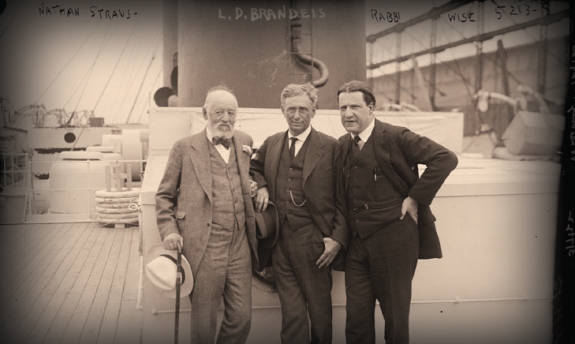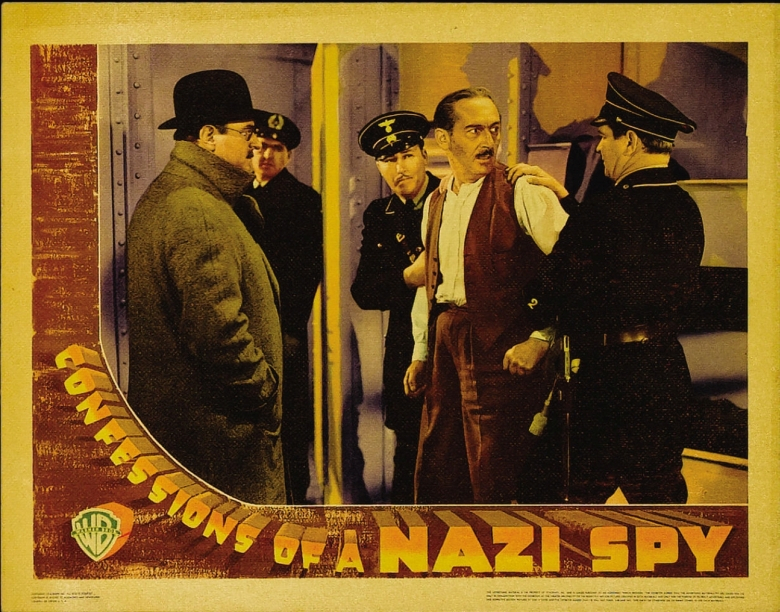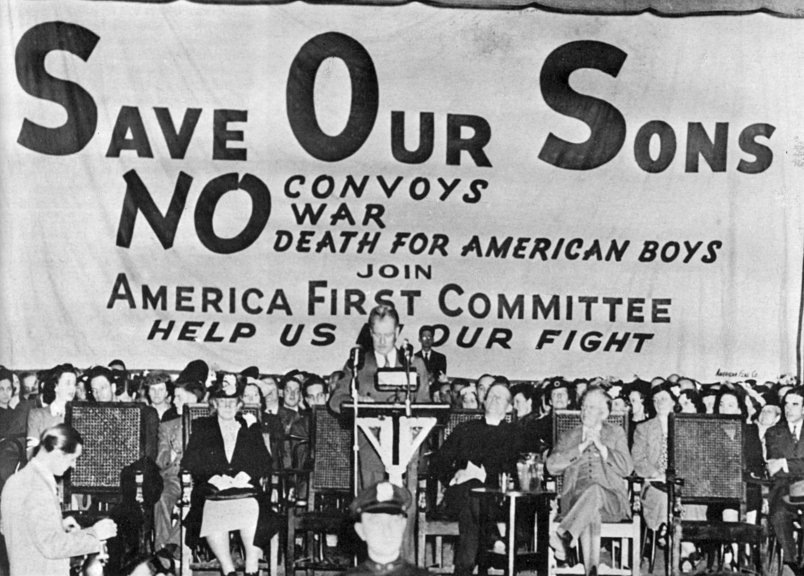While I’ve more or less shut myself off from the current news and its insistent jarring updates, I’ve been simultaneously digging harder than ever into the past.
Searching into the known past allows me to listen in to conversations from generations ago that disagreed about where civilization was meant to go. Now with the hindsight to know which voices won out, which individuals prophesied correctly, which didn’t, and which should have, I stand on the shoulders of the past, seeing farther than the warriors of each generation, wondering what story will be written about the struggles we are going through now.
In searching through historical records, I do teshuvah, rectifying the sin of willful ignorance, praying from wisdom and hope.
My most recent dive has been into “Racing Against History, the 1940 campaign for a Jewish Army To Fight Hitler” by Rick Richman.
Here a few specific ways, taken from Richman’s book, that represent how far we’ve come in such a short amount of time. The following are four main ways American Jews’ opinions dramatically differed from ours, on the whole, less than a century ago.
The Importance of Zionism

Their task to rouse the spirit of American Jewry to support Zionism was great.
Today, the vast amount of American Jews across the denominations love the state of Israel and believe in Zionism and the importance of a Jewish state, despite different opinions as to political or territorial decisions within Israel. But that is a much easier thing to say and do, after the Israeli state has been created and is thriving.
In 1897, Theodore Hertzl published The Jewish State, which was the seminal document of the beginnings of the Zionist movement in Europe. Rabbi Isaac Wise (not Rabbi Stephen Wise, pictured above), was one of the main Reform rabbis in America, and opposed to the idea, saying in 1897 “it would turn the mission of Israel from the province of religion and humanity to the narrow political and national field, where Judaism loses its historical significance” and that the idea of a Jewish state was “utopian” and “foreign”. Later that year, he said “That new Messianic movement over the ocean does not concern us at all”.
While The Jewish Congregational Union of America, which represented Orthodox rabbis, did announce its support in 1898 for Zionism, Orthodox rabbis as a whole “generally rejected Zionism on the basis that the Messiah had not yet arrived. For many Orthodox rabbis, Zionism was a movement that weakened traditional Judaism and was in significant part a rebellion against the Jewish past. ( RAH, 15)”
While opinion did shift as conditions worsened for Jews in Russia and Eastern and Central Europe, with the Reform movement endorsing not a Jewish state, to which they were wary of loyalty away from America, but a Jewish “haven” and “center”, and the Conservative movement announcing its belief in the central importance of Palestine, a Time Magazine article in 1938 devoted to the split between Zionists and anti-Zionists is telling. Called “Jews vs. Jews”, it announced that,
“There are two kinds of US Jews. One kind (in its own words) is composed of “Americans who are Jews”- Americans who, as individuals, practice the Jewish Faith, or, if they are not religious, admit their Jewish ancestry.
The other kind is a smaller but more articulate group of “Jews in America”- Jews who have not only a common religion but a common culture; who believe they are members of a scattered nation; who tend to approve Zionist aims toward a Jewish homeland. Between these two groups there is deep-rooted animosity (RAH, 16).”
Richman states that “Most American Jews in 1940 viewed the United States as the new Zion” and “few of them endorsed Zionism publically or espoused it whole heartedly even privately (RAH, 26).”
After Israel blossomed into the thriving, beautiful (though, of course, imperfect) country it is today, 71 years later, we can now look back at the American skepticism of 1940 with the privilege of living in another time and the ability to easily book a ticket and fly into the Holy Land any time we need.
The Importance of Holocaust Films

Growing up neck-high in Holocaust films, it’s bizarre to think that there was nothing coming out of Hollywood as Germany’s might and destruction was rising, but the incredible isolationist American approach had quite a hold over the creativity of the film industry. In the 1930s, no one wanted to create films directly addressing what was happening over there, in Germany, in Paris, in London.
Racing Against History describes how one person finally did, in 1939, called Confessions of a Nazi Spy, by religious Jew, Harry Warner of Warner Bros. He was the son of a cobbler who came to New York in 1883, fleeing from Russian pogroms, and he created a film based on a true story, of a Nazi spy ring in New York that that had been tried and convicted.

Harry was also the only one to speak out vocally in the American film industry at the time against the Nazis. On June 5, 1940, he collected all of his employees to give a large speech, warning everyone of the danger of the the war, of Nazism, Fascism, and Communism spreading to America. He, along with everyone else more or less in America, did not want to get involved in what was first called in the early years to be a “fake war”. Staying separate from supporting US involvement in the war, Harry just spoke about the importance of the dangerous ideology spreading to America.
“My mother and father lived under such a system [as the Nazis] and that’s why we were brought here… and that’s why I’m so carried away…We don’t want anybody in our employ who.. [are] Communists, Fascists, Nazis, or other unAmerican nonbelievers…I don’t want you to leave here thinking that I am telling you or anybody in this world that I want war… God knows I want peace…The only certain way of insuring our peace is to be strong in arms and defense that we can command peace. And we will never be strong enough to see this ideal realized until we have ejected from our midst, those enemies who are boring from within. (Racing Against History, 23)”
While the film won awards in 1939, a year later, Harry was taken to trial, accused that the film was “war propaganda”, blamed for inciting Americans to get involved in the European war. The chairman of the committee against him, Senator Gerald P. Nye R-ND, warned,
“If you start out with the premise that England’s fight is our fight.. we cannot end up anywhere, but in a wish to go to war.. there is a great body of people in this country-and polls show 70 to 80%- who simply differ with you on that score, who believe that England is not fighting our fight, that she is fighting the same battle she has fought throughout the centuries, for trade, gold, and commerce (RAH, 24).”
The Importance of Having a Jewish Army
British Jewish soldiers in the Jewish Legion 1918
Nowadays, it’s so obvious that the Jewish people need an army, as we are privileged to the benefits of safety and success of the IDF, the Israeli army, in protecting its citizens. How fascinating it is to think of a time in which a Jewish army hadn’t existed for two millennia, and how resistant people were to such an idea, thinking it couldn’t be done. The book describes how Vladimir Jabotinsky first embarked in 1914 on the Jewish Legion venture-which was to become the first Jewish army in Palestine in 1917 to combat the Ottoman Empire. When Jabotinsky first attempted to gain Jewish and British support for such a venture, everything was against him.
As Lt. Col Patterson who later became commander of the Jewish Legion described his difficulty,
“Since the fall of Judea and the Jewish dispersion all over the globe, there never was a Jewish military unit anywhere in the world. For two thousand years, the Jews had had neither a state organization…nor any military formation of their own. Furthermore, by the very fact of the Jewish dispersion, the Jewish people had a stake in every land, and this was later to be one of the chief arguments of the opponents of the Jewish Legion. “How can we dare,” they would say “to join either of the warring alliances, thus endangering the Jewish populations of the other alliance? (RAH,63)”
As Richman points out, “Jabotinsky consulted Zionist leaders, virtually all of whom advised against any participation by Jews in the war as Jews. The sole exception was (Chaim) Weizmann.”
Weizmann and Jabotinsky eventually garnered the support of the British government, announcing a Jewish regiment in 1917, despite this strong Jewish opposition.
In hindsight, we see the importance of the Jewish Legion, as it was able to fight for the Jews before Israel was created, and the important predecessor to the Jewish military in Palestine and what became Israel. But at the time, it was unheard of and threatening to their sense of allegiance for the home countries of many Jews and Jewish leaders.
Richman’s book talks about how all three Jewish leaders (Weizmann, Jabotinsky, and Ben- Gurion tried valiantly to convince British and American government support in forming a Jewish military unit over twenty years after the Jewish Legion was created to fight Germany during World War Two, which, unfortunately, was ignored.
Jabotinsky was possibly getting closer in this goal in 1940, before being sabotaged by American Zionist leaders.
As Richman describes, as Jabotinsky was arranging for a massive New York rally to demonstrate support for his plan for a large-scale Jewish army of 100,000 Jews from around the world to aid the British in the fight against the Germans, he arranged for meetings with Lord Lothian from England to gain his support for the plan. A week before the rally, “the British embassy sent a letter to Jabotinsky informing him that the British consul-general in New York would attend (84).”
This development and show of British support was huge. However,
“The American Zionist organizations learned of the British decision and mobilized to reverse it. On June 17- two days before the rally- they sent their own delegation to Washington…to meet with the British ambassador. After the meeting, the delegation issued a curt statement to the press: “American Zionist organizations are not associated with Mr. V. Jabotinsky’s activities in anyway.” Given the opposition from the American Jewish leaders, Lord Lothian withdrew his consul-general from the rally (84, RAH).”
We see the impact that the Jewish Legion had on Jewish history. Had the governments heeded the cry of Jewish visionaries desperate to empower Jewish to fight the great fight of World War Two, and had the American Zionist leaders fully supported these visionaries, who knows where history and the Jewish community would be today.
The Importance of Getting Involved in World War Two

Now, with the horrible knowledge that we have of exactly what went on during the Holocaust, we can scream across the last two generations and say : “Wake up! Fight for what’s right! Stand up, speak out!” But reactions in the moment were more complicated. While the Americans Jews didn’t know the horrific extent to which everything that was going on, they did know there was terrible Jewish suffering. Weizmann, Jabotinsky, and Ben- Gurion visited America in 1940 and tried to spread the word, and tried to raise awareness of the necessity of involvement, but before Britain was really attacked and in the war, American Jews’ heartstrings on a whole were not invested in involvement.
On June 3, 1940 the German Air Force bombed Paris, and German forces prepared to enter the French capital. Aware of the effect this calamity would have, in New York, to gather the troops, Jabotinsky send identical letters to every major American Jewish leader. Each letter read:
“In view of a situation so grave, it seems to me that steps should be taken here to establish without delay some kind of “Vaad Olami”- a World Jewish Committee to concentrate the care and defense of the interests of our people in the Eastern hemisphere. In the face of dangers never yet paralleled in our history, a common platform could now perhaps prove easier to find that ever before. I take the liberty to propose, with all the earnestnesss warranted by the moment, that from among this group of leaders the initiative should come to convene a preliminary consultation for devising ways and mean (RAH, 83).”
Mostly due to differences in opinion (most American Jewish leaders were wary of Jabotinsky’s strong stances), those who took the effort to reply, declined his offer.
Months later, after the bombing of London began, Americans and its Jews realized they needed to get involved.
Even so, an interesting letter from David Ben Gurion in January 1941 to the Tamar de Sola Pool, the president of Hadassah-the leading women’s Zionist organization in America- is telling. Ben Gurion relates:
“I shall not…deny the distressing feeling which American Jewry has awakened in me. Even in Zionist circles I did not find an adequate awareness of the seriousness of this desperate and tragic hour in the history of Israel. Does the fate of millions of their kin in Europe concern Jewry in America less than the fate of England affects the people of America? (RAH, 134)”
Conclusion
This digging has created powerful rumblings within me of all kinds of feelings: amazement, appreciation, horror, humility, as well as so many questions.
Questions arise like: What effect will my efforts make on the world? What will be my contribution? What will the history books say eighty years from now?
Reading the incredible stories of three great, transformative Jewish leaders of the 1940s, I see how even the stories of their own greatness barely survived a couple of generations, their names just slightly on the top of my tongue if at all, my previous understanding of their incredible accomplishments incredibly slim. I took the time to read about their accomplishments, this past week, but how many else will? Their effects, however, have bulldozed the world and changed Jewish life immeasurably. I benefit now from their sacrifices then.
I might not be remembered in the history books. My projects may succeed for a while and effect people positively, but I never know how deep the reach will be.
But I can’t live my life because I want to be remembered. I can’t live my life judging myself constantly as a failure or success. We never know. All we can do is march forward, stick to our values, our beliefs, fight the valiant fight, and know that the history books, and the evolution of the world, and our children’s children will have the privilege of hindsight, but we have the opportunity for bravery and creation.
The future is being woven together now. May I be blessed to make the right decisions that will help humanity in its ongoing struggle for redemption.






